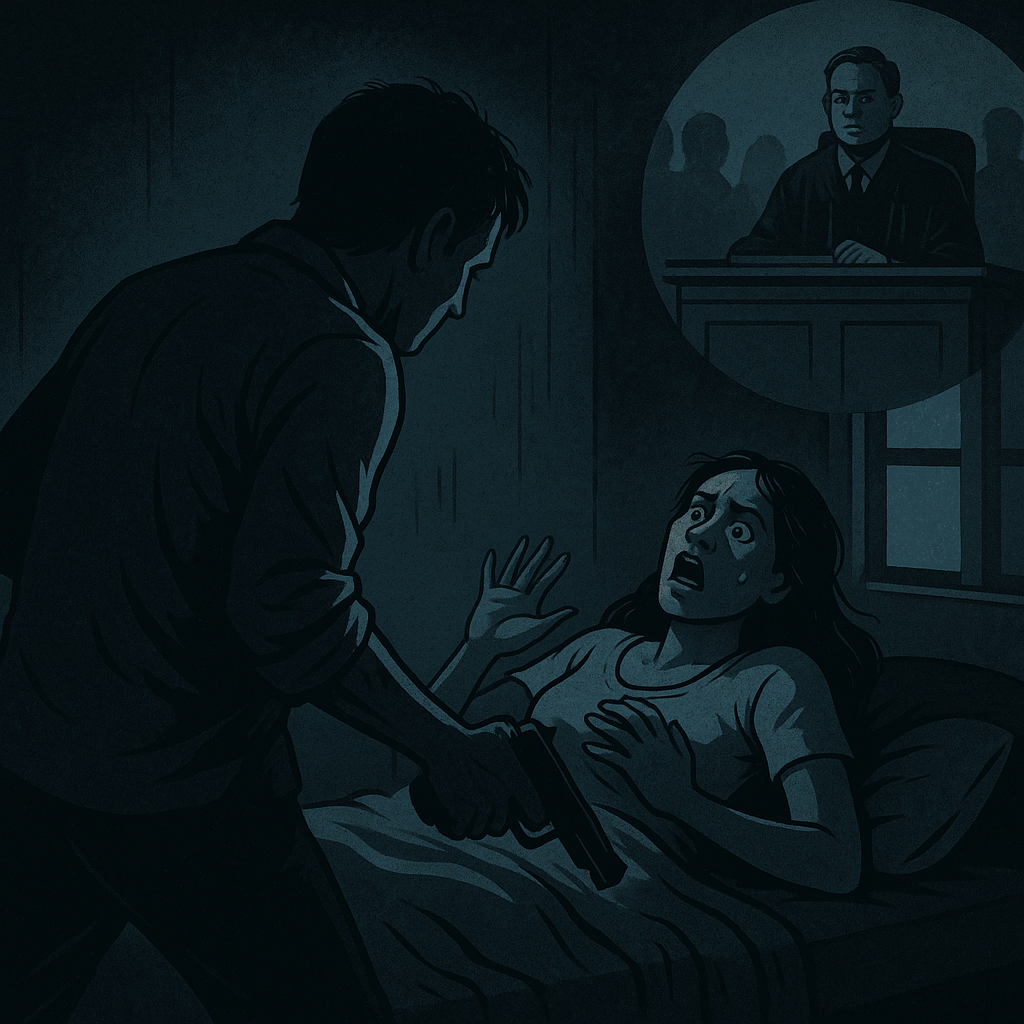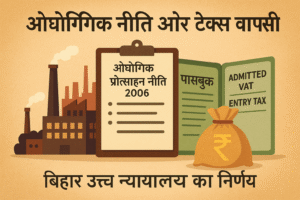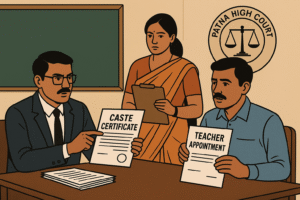Simplified Explanation of the Judgment
In March 2021, the Patna High Court delivered an important ruling in a criminal appeal concerning a conviction for attempt to rape and related offences. The case highlights how courts evaluate the reliability of witness testimony, especially in sensitive cases involving sexual assault.
Background of the Case
- The appellant was tried for offences under Sections 376/511 (attempt to rape), 354 (assault or criminal force with intent to outrage modesty), and 354(B) of the Indian Penal Code.
- The trial court had convicted him and sentenced him to:
- 7 years rigorous imprisonment with a fine of ₹5,000 under Section 376/511.
- 3 years rigorous imprisonment with a fine of ₹1,000 under Section 354.
- 5 years rigorous imprisonment with a fine of ₹2,000 under Section 354(B).
- The sentences were to run concurrently.
The case originated from an incident in March 2014 when the prosecutrix alleged that the appellant forcibly entered her house at night with a firearm, sat on her body, caught her breast, and tried to disrobe her. She claimed she raised alarm, and neighbours rushed in, causing the accused to flee.
Trial Court’s Findings
The trial court accepted the prosecutrix’s initial statement and convicted the appellant, noting that serious offences like attempt to rape cannot be compromised even if the parties settle privately.
High Court’s Findings
On appeal, the Patna High Court carefully examined the evidence. Key observations were:
- Identification in Darkness:
- In her cross-examination, the prosecutrix stated that it was a dark night and she could not identify who entered her room.
- This cast serious doubt on the prosecution’s case because identity of the accused is fundamental to conviction.
- Neighbour Testimony Not Reliable:
- The neighbours (P.W. 1, P.W. 2, P.W. 3) were not eye-witnesses. They said they had either seen the accused leaving the house or heard about the incident from the prosecutrix.
- P.W. 3 admitted he arrived 10 minutes after the alleged incident, weakening his claim of having seen the accused.
- Compromise Factor:
- The parties had entered into a compromise in this and a counter-case filed by the accused against the prosecutrix’s husband.
- While the Court clarified that compromise cannot be the sole basis for acquittal in serious offences, it noted that the evidence itself was weak and did not inspire confidence.
- Benefit of Doubt:
- The Court held that given the prosecutrix’s admission about inability to identify the accused and contradictions in the evidence, the appellant was entitled to the benefit of doubt.
Court’s Final Decision
- The High Court set aside the conviction and sentence.
- The appellant, who had already spent significant time in custody since June 2019, was ordered to be released immediately.
Significance or Implication of the Judgment
- For criminal jurisprudence: The judgment reinforces the principle that in criminal cases, especially sexual assault, conviction cannot be sustained unless guilt is proved beyond reasonable doubt. Identity of the accused is a core requirement.
- For victims and witnesses: It shows the importance of consistent and reliable testimony. Contradictions in statements can weaken the prosecution case significantly.
- For lower courts: The ruling emphasizes that while compromise in sexual offence cases cannot be encouraged, courts must base decisions strictly on evidence rather than presumptions or social pressures.
- For the accused: The judgment reflects that if evidence is shaky or inconsistent, courts are bound to give the benefit of doubt and prevent wrongful conviction.
Legal Issue(s) Decided and the Court’s Decision with Reasoning
- Whether the prosecutrix’s testimony was sufficient to sustain conviction
• Decision: No.
• Reasoning: In cross-examination, she admitted she could not identify the accused in the dark. This undermined the prosecution’s case. - Whether neighbour witnesses corroborated the incident
• Decision: No.
• Reasoning: Their statements were hearsay or inconsistent, and one admitted arriving much later. - Whether compromise between parties justified acquittal
• Decision: Not directly.
• Reasoning: While compromise was noted, acquittal was granted because of lack of credible evidence, not merely due to settlement. - Final Outcome
• The conviction and sentences under Sections 376/511, 354, and 354(B) IPC were quashed.
• The appellant was acquitted and released immediately.
Case Title
Appellant v. State of Bihar
Case Number
Criminal Appeal (SJ) No. 3154 of 2019
Citation(s)
2021(2) PLJR 246
Coram and Names of Judges
Hon’ble Mr. Justice Birendra Kumar
Names of Advocates and who they appeared for
- For the appellant: Mr. Vikram Deo Singh, Advocate; Mr. Shankar Kumar, Advocate; Mr. Sada Nand Roy, Advocate
- For the respondent (State): Mr. Syed Ashfaque Ahmad, Advocate
Link to Judgment
MjQjMzE1NCMyMDE5IzEjTg==-OuxSsbdNUjM=
If you found this explanation helpful and wish to stay informed about how legal developments may affect your rights in Bihar, you may consider following Samvida Law Associates for more updates.








